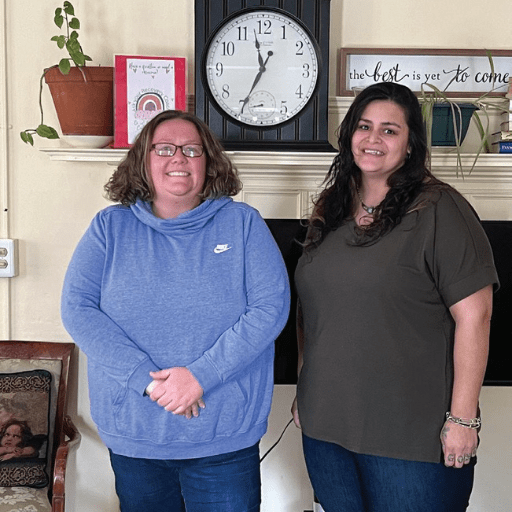Safe Harbor’s Mission and Vision
Our mission is to provide a safe, supportive, affordable living environment for women in recovery. Our vision is of a recovery-ready community in which all people seeking recovery and in recovery, along with their families and loved ones, are able to access the support and resources they need in order to thrive.
A Place for Women to Grow and Build Connection
Q:
What happens when you have four guiding forces working together on a common goal?
A:
A successful collaboration known as Safe Harbor – a recovery home in Machias that welcomes women with and without children.
Aroostook Mental Health Services, Inc. (AMHC), Downeast Community Partners (DCP), Healthy Acadia, and the Community Caring Collaboration (CCC) worked together to bring Safe Harbor’s concept, philosophy and vision to life.
Since the beginning, the four organizations have met weekly to maintain the house’s excellence. Every decision impacting Safe Harbor is made collaboratively.
“Collaboration that supports the house is the real deal – not just a buzzword – it is what true collaboration really should look like,” said Penny Guisinger, Recovery Programs director at Healthy Acadia.
Safe Harbor is the only recovery residence in Washington County certified by the Maine Association of Recovery Residences and one of just a few recovery homes where women can live with their children.
“Whether or not to provide housing for children along with their moms was never a question,” Penny said. “We were committed to that from the beginning because we know that having to leave their children behind keeps some women from seeking treatment or help.”
Safe Harbor provides independent supported living. Residents are required to attend four “pro-socials” per week that can be anything from 12-step meetings to structured health activities. Katie Sell, Safe Harbor’s Recovery House manager, is at the helm to make sure everything runs like clockwork and makes certain all the residents’ needs are met.
“Katie Sell has gone above and beyond time after time,” said Abby Frutchey, Substance Use Response coordinator for CCC. “She’s a real rock star.”
Lauren Sachs, a former intern at the center, is now the Recovery Response coordinator for Healthy Acadia working in the community. She’s is in long-term recovery herself and formerly lived in homeless shelters in San Francisco. She brings that lived experience with her when supporting others in their recovery journeys.
A challenge for most recovery house residents can be transportation, but Safe Harbor organizers have created solutions, including transporting residents with a van donated by DCP. Also, Modivcare transportation, through MaineCare, provides residents with rides to medical visits. And DCP recently began providing non-medical transportation from the recovery residence to downtown Machias. This service is affordable, and, in fact, one resident uses the service to get to and from her job.

DCP also provides a food pantry that the residents can access, and there is always plenty of food stocked in the home’s three refrigerators. Looking out for each other routinely, the residents make sure their “house” community is always fed.
A key intent for Safe Harbor from the beginning was to have the recovery home be incorporated and accepted into the broader Machias community, and this is happening. It’s common for community members to make donations of all kinds to the house or residents. For instance, a local hairdresser donated gift certificates so the women could come in and receive services at her salon. Another, Katherine’s Closet, has an arrangement with Safe Harbor to help residents with clothing needs.
“Many of the residents have never set foot in Washington County before – so these acts of kindness help generate hope within them. It inspires them to be part of the community,” said Abby. “Feeling connected is important to recovery.”
“We’ve had residents who have reunified with their children and bought a home,” said Abby. “We’ve even had a resident who came to us when she was about to deliver her baby. She went to the hospital, had the baby, and returned to Safe Harbor with the newborn infant. The community wrapped their arms around them, showering them with everything they needed.”
While transitioning into mainstream living is a goal, residents do not have limits on how long they can live at Safe Harbor.
The time spent at the house differs from week to week,” Lauren said. “We are there for as long as it takes to make sure all the residents’ needs are met.
Safe Harbor is a place that offers support to help women in their unique journeys to recovery success. For more information, visit: www.healthyacadia.org To apply to Safe Harbor, click on “Need Help?”
This article was made possible with the support of the OPTIONS program and the Maine Office of Behavioral Health
.



